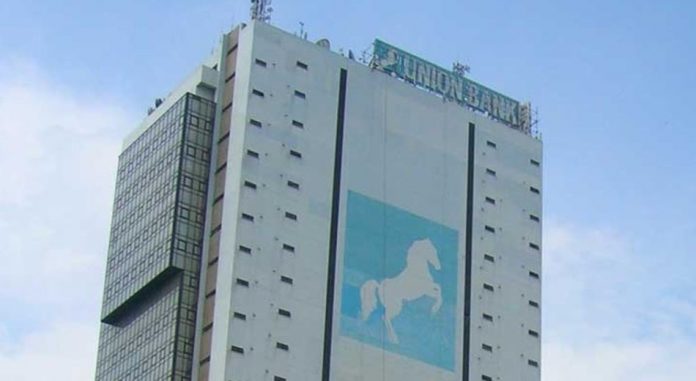Union Bank Plc has released its unaudited results for the first half of 2020, positing a 10 per cent increase in gross earnings as profit before tax remained at N11.3 billion compared to N11.2 billion which it posted in the first half of 2019.
The bank in the result released to the investing public yesterday, recorded gross earnings of N79.9 billion as against N72.4 billion which it posted in the comparable period of 2019 as interest income rose by six per cent to N57.2 billion driven by increase in earning assets, compared to N53.8 billion in the comparable period of 2019.
Its operating expenses remained flat at N35.4 billion notwithstanding inflationary pressures and COVID-19-related costs, as gross loans went up six per cent to N630.5 billion as against N595.3 billion as at December 2019, reflecting the opportunities for risk asset creation given economic realities.
Customer deposits likewise went up 12 per cent to N995.2 billion from N886.3 billion as at December 2019 reflecting increased demand for the bank’s innovative offerings and the continued benefits of its growth.
Commenting on the results, chief executive of the bank, Emeka Emuwa, said, “The impact of COVID-19 and associated movement restrictions on the Bank and the wider economy has been broad. The total lockdown of major commercial centers Lagos, Abuja and Ogun and partial lockdowns across the country, slowed business operations in Q2 2020.
“Notwithstanding these significant headwinds, the Bank delivered a 10 per cent increase in its top line revenue of N79.9 billion for H1 2020. In addition, net interest income before impairments is up 21 per cent to N28 billion and non-interest income up 22 per cent to N22.7 billion.
“The slowdown limited growth in key income lines including fees and commissions and cash recoveries. However, we continue to reinforce the use of our digital channels with 90 per cent of transactions completed digitally in H1 2020 which translated to a 42 per cent growth in e-business fees from N2.5 billion in H1 2019 to N3.6 billion in H1 2020.
“We deliberately grew our loan portfolio both in the retail and commercial/corporate banking space resulting in a six per cent growth in interest income. Given the constrained operating environment, we continue to proactively monitor our loan portfolio and support our customers in line with the Central Bank’s guidance on forbearances. Nevertheless, growing our loan book remains a strategic focus area for us for the rest of the year as we continue to identify new opportunities emerging in the face of the pandemic.
“I am pleased that the Bank has been able to support our employees, customers and the wider community through the ongoing COVID-19 crisis. In particular, the #UnionRiseChallenge which we launched in June, recognised and rewarded customers who in spite of the COVID-19 pandemic are rising to support their communities. The Bank awarded N15 million to 90 recipients over a period of four weeks and helped amplify the great work of over 1500 community initiatives that were submitted through the campaign.
“As we navigate the realities of the pandemic for the remainder of the year, we will continue to focus on increasing transaction volumes on our electronic channels, managing cost and strategic targeting of key customer segments to ensure we end the year well. We will also continue to prioritise the health and safety of our employees and customers, while finding innovative ways to meet and exceed our customer expectations.”
Also speaking on the H1 2020 numbers, chief financial officer, Joe Mbulu said, “Our H1-2020 Bank numbers reflect the performance of our continuing operations for the period. Notwithstanding increasing inflation and unexpected costs related to the changes to our operating structures during COVID-19 lockdown, we have been able to keep operating expenses under control during H1 2020. This is indicative of the strength of our Long-Term Efficiency Acceleration Programme (LEAP) which continues to optimise key cost lines. The continued expansion in the loan book led to enhanced interest income.”


